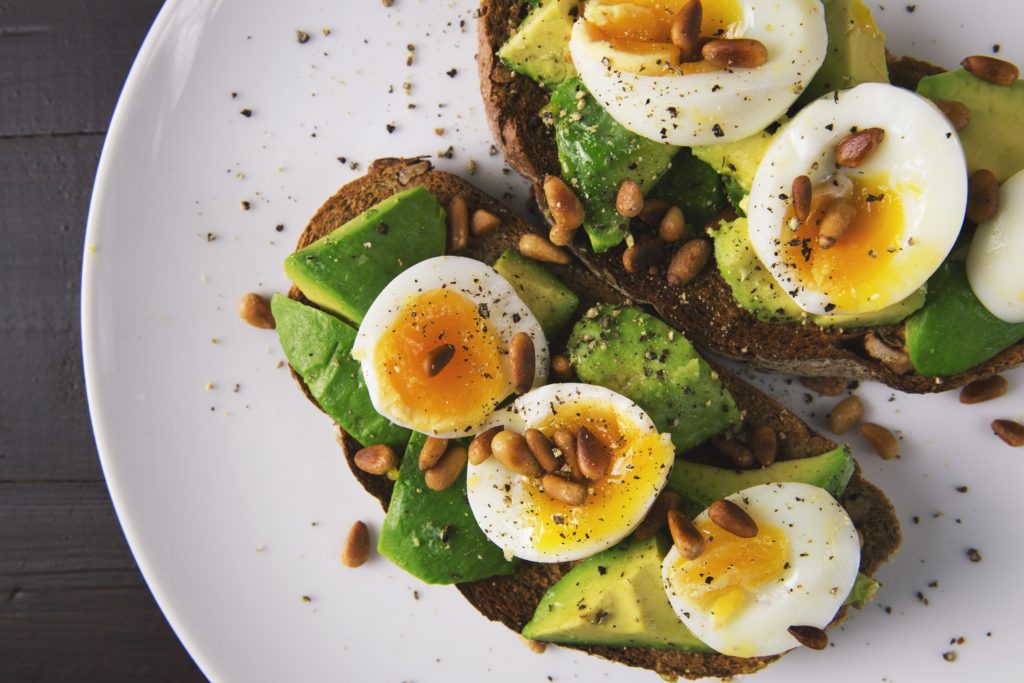Will Eating Fat Make Me Fat?
I’d like to introduce you to Janelle Hunt, who is a Registered Dietitian and an EDIT™ Certified III – Eating Disorder Treatment Clinician. Janelle worked with me at my previous office location in Denver, Colorado. She is a knowledgeable and compassionate clinician, who specializes in nutritional counseling for people in recovery from eating disorders. She guides her clients to learn the real facts about nutrition – in this article, you’ll learn the facts about fats. If you’re “hungry for more,” please contact Janelle about becoming a client (see bottom of article).
– Dr. Dorie
My name is Janelle Hunt, MS, RD – and I’m a Registered Dietitian who specializes in the treatment of eating disorders. In some of my other blogs, I discussed how essential it is to consume carbohydrates and protein. Now let’s look at another vital macronutrient – fat. Yep, the forbidden word, fat! It seems like currently the media is on a ‘carbohydrates are bad’ kick but many of us recall the 90’s fat-free craze. Almost all food naturally containing fat, became fat free. Cheese would no longer melt, potato chips caused gastrointestinal problems because of the Olestra being added instead of fat and our pans were never the same again as even oil or degreasers were forbidden. Even though the media moved onto different trends, this fad still hangs in the back of our minds and I often have clients who are still convinced that fat is bad.
To answer the common question, Will Eating Fat Make Me Fat – let’s review the different types of fats:
Saturated: found in animal-based products and tropical oils – meat, eggs, dairy, palm oil and coconut oil. They are typically solid at room temperature. These used to be thought of as bad fats but more studies are showing that as long as these are consumed in moderation, they are not harmful.
Unsaturated (poly, mono and omega’s): typically found in plant oils as well as fatty fish – olives, nuts, seeds, avocados, salmon and tuna. These are known for having huge health benefits. They are being used to treat schizophrenia and depression, prevent blindness, decrease cholesterol levels and help with healthy skin and hair.
Trans Fat (partially hydrogenated fat): manufactured fat found in processed foods. Because this is not a natural fat, the body does not know how to process them properly, therefore these fats are linked to increased risk of heart disease. As of June 18, 2018, all partially hydrogenated fat must be eliminated from food.
Fat is essential for many reasons. To begin with, it provides the amazing flavors and smells when we cook. Three pounds of our brain is water. If we removed the water, we have over half of the brain containing fat which includes cholesterol and unsaturated fat. This is critical for our brain to communicate. If you imagine dropping a pea into a jar of olive oil, it will float around but if the jar does not have oil in it, the pea will clink around in there. The same thing happens in your brain. When clients eliminate all fat from their diet or begin to lose too much weight, the brain actually shrinks. This leads to increased risk of dementia and depression as well as increased eating disorder thoughts. Rationale tends to decrease considerably, especially when it comes to not overthinking food choices and having a healthy body image.
So – back to the question, Will Eating Fat Make Me Fat? It is true that fat is more calorie-dense then carbohydrates and protein – meaning that each gram has more calories. But it’s important to remember, “everything in moderation.” Let’s focus on trying to eat some fat throughout the day so we can have the healthiest brain possible.
*****
Looking for guidance with NUTRITION? Contact Janelle Hunt, MS, RD – the author of this blog article. She is an EDIT™ Certified III – Eating Disorder Treatment Clinician, and has a specialty in nutritional counseling for eating disorders. – EMAIL JANELLE
Interested in a FREE consultation with Dr. Dorie? Dr. Dorie is passionate about her method of Eating Disorder Intuitive Therapy (EDIT)™ to help people overcome eating disorders and addictions. She provides customized counseling for eating disorders and alcohol / drug addiction at her Positive Pathways treatment center in Evergreen, Colorado – and EDIT™ eating disorder training and certification for coaches and clinicians worldwide. CALL 303-494-1975 – EMAIL DR. DORIE

